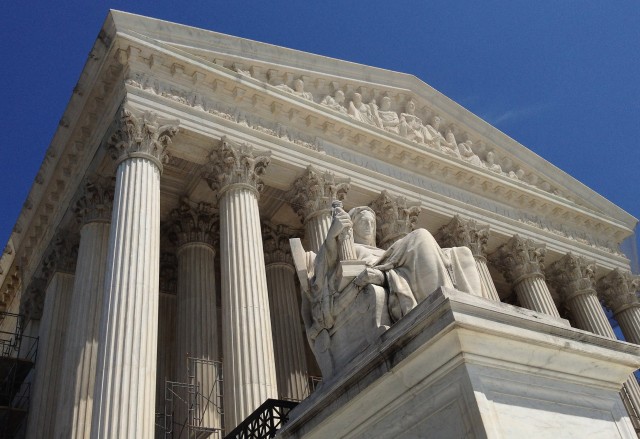
It's been three years, but the Affordable Care Act is before the Supreme Court again. The constitutionality of the law was settled then. This time, the question is subsidies. Oral arguments happen Wednesday.
The case is King v. Burwell, and the heart of the matter is whether the ACA permits subsidies to be granted to people who live in the 34 states that use the federally-run marketplace, healthcare.gov.
Note well: people in California, and the 13 other states that set up their own insurance marketplaces are not affected by this case. No one is challenging the legality of the subsidies as a whole -- only whether they may legally go to people who live in states using healthcare.gov.
Here's Kaiser Health News' Julie Rovner on the part of the ACA in question:
At issue in this case is a line in the law stipulating that subsidies are available to those who sign up for coverage "through an exchange established by the state." In issuing regulations to implement the subsidies in 2012, however, the IRS said that subsidies would also be available to those enrolling through the federal health insurance exchange. The agency noted Congress had never discussed limiting the subsidies to state-run exchanges and that making subsidies available to all "is consistent with the language, purpose and structure" of the law as a whole.
But those challenging the law, Rovner says, insist that indeed Congress did intend to limit the subsidies to those buying insurance on a state exchange, like Covered California.